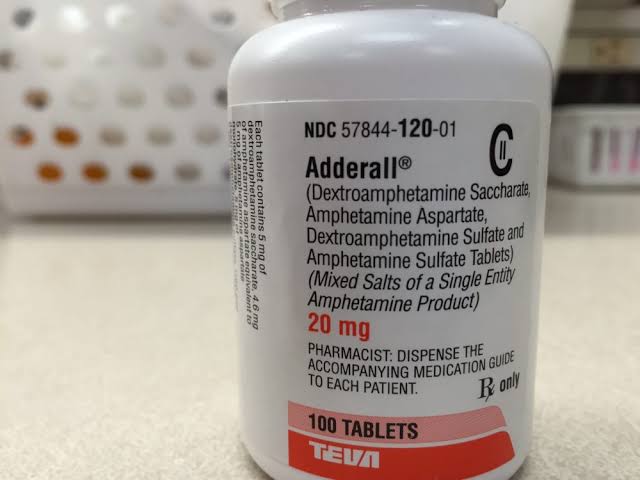I know not with what drugs Type 3 Diabetes will be fought, but Type 4 Diabetes will be fought with sticks and stones.
Dear god, this is the best response I have ever heard and it has made my day. First the mysterious song gets found, and now this. What a month!
Aw, shucks.
 Kind of you to say.
Kind of you to say.
This made me laugh so hard dude. Very rare that a post can do that. I’ve been having a kinda shit time too, thanks for the mirth.
?
It’s a honest distrust. I’m no medic obviously.
Yeah but “type 4 diabetes” is funny.
If you want the actual 10 year medical disaster from Ozempic my bet’s on an exciting new kind of liver or pancreas failure.
pancreas failure
Literally type 3c diabetes
Nah I wasn’t tryna be a dick, I just genuinely found the idea of type 4 diabetes really funny, and the gallows of humour of how bad ozempik is gonna fuck up an entire generation… it was just a chefs kiss combo for me
There’s other types lol, there’s even a 1.5!
Its a trash ass patch. Fix it devs
Gestational?
I don’t think GDM has a specified “type”, for type 1.5 diabetes just think “slow type 1” diabetes
I’m imagining 5 dimensional diabetes where Wilford Brimley is talking backwards and phasing in and out of existence
im waiting for phen/fen part deux.

 look at what they need to mimic a fraction of our power
look at what they need to mimic a fraction of our power 
I get adhd meds so I feel like I should be in on this joke, but I don’t get it. Would you explain it for me, please?
Amphetamine was the original (safe) weight loss drug due to it increasing metabolism and suppressing appetite.
Phentermine and fenfluramine are basically worse amphetamines to achieve a similar effect.
The appetite suppression will be less noticeable for many people with ADHD because you could be forgetting to eat and then overeating later when you feel like you’re starving
Neat! Thanks so much for the explanation
Wilford Brimley will take on that beetus too, ripping and tearing, until it’s done.

I don’t think I’ve seen a demotivation poster in a long time.
I just wanted the glowing eyed Wilford Brimley face.
I’ve actually been traveling the world collecting all of the Diabetes. There’s 7 of them and when you get them Ronald McDonald shows up and grants you a wish.
Ozempic has been on the market for almost a decade I think?
deleted by creator
I understand that the dosages of semaglutide for diabetes range from 0.25mg to 2mg - are you saying people are injecting 10mg a week? That does seem like a considerable leap
Th lifetime usage aspect makes them particularly attractive for pharma companies
deleted by creator
Yeah they did another trial (SUSTAIN FORTE) for diabetes after those
Semaglutide is an effective treatment for type 2 diabetes; however, 20–30% of patients given semaglutide 1·0 mg do not reach glycaemic treatment goals. We aimed to investigate the efficacy and safety of once-weekly semaglutide 2·0 mg versus 1·0 mg in adults with inadequately controlled type 2 diabetes
10.1016/S2213-8587(21)00174-1
deleted by creator
Right, but the weight loss increase was also very small
Mean change in bodyweight from baseline at week 40 was −6·9 kg with semaglutide 2·0 mg and −6·0 kg with semaglutide 1·0 mg
So glycated haemoglobin improves by 10 percent and weight loss increase by 15 percent.
This would suggest to me that whatever long term problems are associated with semaglutide at 2mg are probably going to be associated with semaglutide at 1mg at broadly similar rates.
Time will tell though!
I don’t wanna be a -truther, I’m just paranoic of the thing being abused/misused cuz right now everyone is getting a prescription for it cuz it’s the magic treatment for weight loss.
I just don’t want a Opioid Epidemic: Pancreas Shenanigangs Boogaloo
All drugs carry some level of risk, and there are enough rare side effects that you’d want a good reason to take anything, because otherwise you might end up as “Case Report: Rare instance of dissolved organs in 40 year old male treated with semaglutide for weight loss”, which would be unfortunate.
What does Ozempic do? Does it just make you less hungry?
Houngry*
idgi
Is there any evidence it’s bad though? There’s so much incredible modern medicine that has absolutely no downsides or side effects for 99.99% of the population, like vaccines
There’s so much incredible modern medicine that has absolutely no downsides or side effects for 99.99% of the population
This is just wrong to the point of being harmful misinformation.
Vaccines are probably the most amazing medicine, but they have (usually minor) side effects for basically everyone. I’m not aware of any medicine that doesn’t.
but they have (usually minor) side effects for basically everyone
I meant side effects near the magnitude of “type 4 diabetes” haha
There’s so much incredible modern medicine that has absolutely no downsides or side effects for 99.99% of the population, like vaccines
There’s also the precautionary principle, which I think is the best way to approach food and drug safety: the thing in question has to be proven to be safe and contingencies have to be in place in case of harm before being released. This is opposed to the more US approach to food and drug safety, which requires proof that the thing is unsafe to proceed with regulation.
me getting narcolepsy from one of the swine flu vaccines

Is that real?
Yes, though that vaccine was taken off the market and even in China (that didn’t use that particular vaccine) the narcolepsy rate tripled anyway because H1N1 flu can trigger narcolepsy
Yeah I know, it’s just distrust
Real, I feel the same about every new COVID booster












